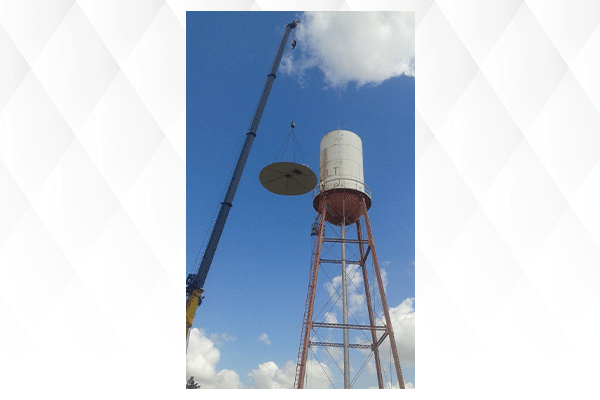OKLAHOMA CITY – The state Legislature this year boosted the appropriation for the Rural Economic Action Plan (REAP) for Fiscal Year 2022 by 17.5%.
The Legislature created the REAP in 1996 to improve life in rural Oklahoma. Its purpose is to assist small communities, towns, counties, and unincorporated areas that have populations under 7,000, and which have little or no funding capabilities.
The authors of the program were then-state Reps. Mike Mass, D-Hartshorne, and Randall Erwin, D-Nashoba.
REAP grants help finance myriad capital improvements such as repairs to or replacement of water and/or sewer lines, repairs to aging water storage tanks, drilling water wells, wastewater treatment lagoons, repairs to municipal streets, construction of sidewalks and senior citizen centers, purchases of vehicles and equipment, etc.
The grants are used for a variety of projects that enhance economic development, promote intergovernmental cooperation, and promote and enhance public health and safety.
This year the Oklahoma Legislature appropriated $15,475,000 to the REAP for FY 2022, an increase of $2.34 million over the $13,126,817 REAP appropriation for FY 2021, said Kaylee Rains-Saucedo, policy director for the Minority Caucus of the Oklahoma House of Representatives.
Some of the annual REAP appropriation is earmarked for the Oklahoma Water Resources Board, and some is allocated to the state’s 11 regional councils of government (including the Association of South Central Oklahoma Governments, based in Duncan, and the South Western Oklahoma Development Authority, headquartered in Burns Flat).
The OWRB received $1,210,704 from the REAP for FY 2021, said Jerri Hargis, Projects and Operations Manager in the OWRB’s Financial Assistance Division.
The Water Board divides its share of the REAP into 10 equal portions. Nine of the COGs receive one-tenth each for water/sewer improvement projects in their particular regions, while the Association of Central Oklahoma Governments, based in Oklahoma City, and the Indian Nations Council of Governments, based in Tulsa, split their one-tenth share.
Although the population threshold for REAP grant recipients is 7,000 or fewer, the Water Resources Board awards its REAP grants on the basis of project points, Hargis said. The edge goes to applicants that receive a minimum of 55 points for authority or town with a population of 1,750 or below, and for a rural water/sewer district with 525 or fewer non-pasture water taps.
The minimum number of points required to be “placed on the list” for consideration of an OWRB REAP grant is 40, Hargis said.
Since the program’s inception 25 years ago, the OWRB has funded 704 REAP grants totaling $61.36 million, agency ledgers show. These included 468 water system improvement projects, 227 wastewater system improvement projects, and nine combined water/wastewater projects. The REAP grants financed 49.74% of the $123.3 million total costs of those projects.
In the region served by the Association of South Central Oklahoma Governments, the OWRB has awarded 70 REAP grants (49 water, 20 wastewater, one combined water/ sewer) totaling $6.129 million, records indicate. Those grants financed a little over two-thirds of the $9 million total cost of those projects.
Recipients of the OWRB’s ASCOG REAP grants have included: Indiahoma, Medicine Park, and Tipton (4 grants each); Manitou and Temple (3 grants each); Geronimo, Rush Springs, Devol, Davidson, Chattanooga, Cement, Sterling, Tillman County Rural Water District #1 and Stephens County Rural Water District #4 (2 each); Faxon, Randlett, Elgin, Grandfi eld, Fletcher and Comanche (1 apiece).
Other REAP grant recipients in the ASCOG region included towns and rural water/sewer districts in Caddo, Grady, Jefferson, and McClain counties.
The OWRB has funded 70 REAP grants totaling $6.2 million in the region served by SWODA. Those grants paid for 53.31% of the $11.63 million total costs of those projects.
Recipients of the OWRB’s REAP grants in the SWODA region included Lone Wolf and Eldorado (4 each); Roosevelt and Gotebo (3 each), Headrick, Mountain Park, Olustee, Duke, and the Quartz Mountain Regional Water System (2 apiece); plus Martha, Gould, and Blair (1 each).
Other REAP grant recipients in the SWODA region included towns and rural water/sewer districts in Beckham, Custer, Greer, Roger Mills, and Washita counties.


